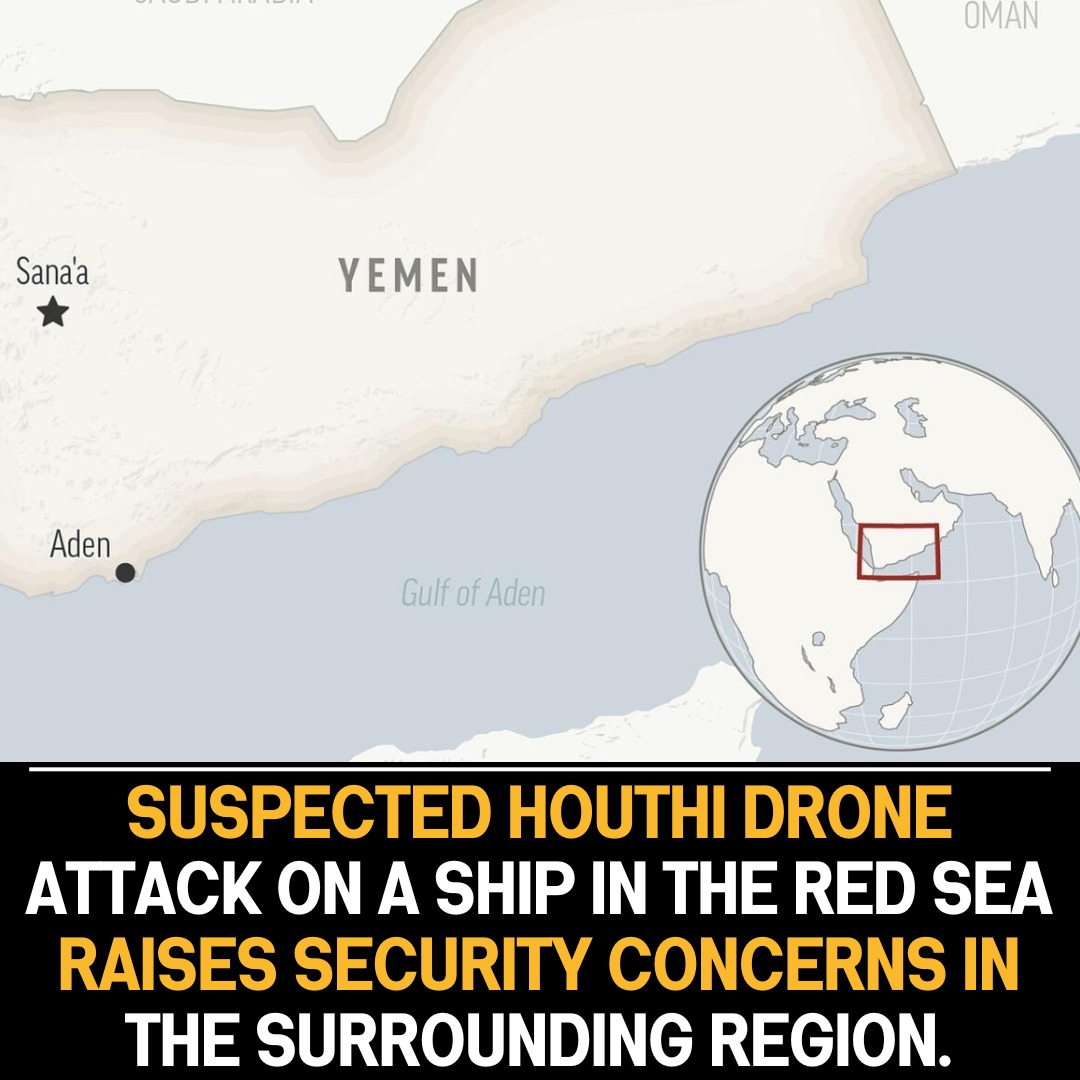In a recent incident that has heightened security concerns in the Red Sea region, a ship became the target of a suspected Houthi drone attack. The event has prompted authorities to intensify their focus on maritime safety and assess the potential implications of such an incident.
The Red Sea, a vital waterway connecting the Mediterranean Sea to the Indian Ocean, has witnessed various geopolitical tensions and conflicts over the years. The suspected drone attack on a ship adds a new dimension to the security challenges faced by vessels navigating these strategically significant waters.
The incident underscores the evolving nature of threats in maritime environments, with non-state actors employing advanced technologies such as drones. The suspected involvement of Houthi forces, known for their use of asymmetric warfare tactics, raises concerns about the security landscape in the Red Sea and surrounding areas.
Authorities are actively assessing the situation to understand the specifics of the drone attack and identify any potential impacts on maritime safety. The evaluation process involves a thorough examination of the incident’s details, including the type of drone used, the extent of damage inflicted, and the response mechanisms in place.
Maritime safety in the region is a paramount concern, given the Red Sea’s strategic importance for global trade and transportation. Ensuring the security and smooth passage of ships through these waters is essential to maintaining the flow of goods and commodities on an international scale.
The suspected Houthi drone attack comes at a time when the maritime industry is already grappling with various challenges, including piracy, illegal fishing, and other security threats. This incident adds another layer of complexity, emphasizing the need for robust security measures and international cooperation to address evolving threats effectively.
International maritime organizations and regional security alliances are closely monitoring the situation, emphasizing collaboration to enhance the security framework in the Red Sea. Coordination among nations, sharing of intelligence, and implementing comprehensive security strategies are crucial aspects of safeguarding maritime interests in the face of emerging threats.
As the assessment of the suspected Houthi drone attack unfolds, stakeholders in the maritime industry, governments, and international organizations are keenly observing developments. The incident serves as a reminder of the dynamic and evolving nature of security challenges in maritime environments, necessitating constant vigilance and adaptive responses to ensure the safety of vessels and their crews.









